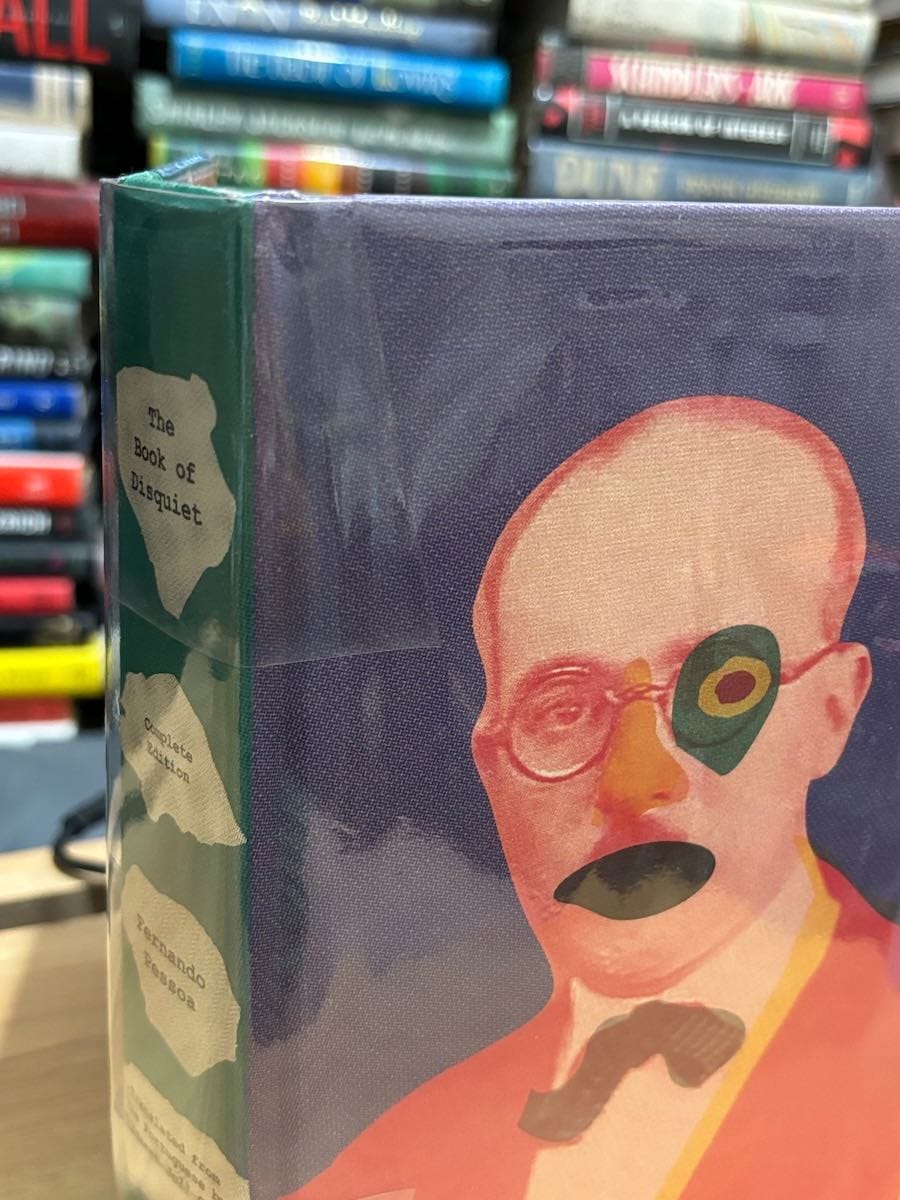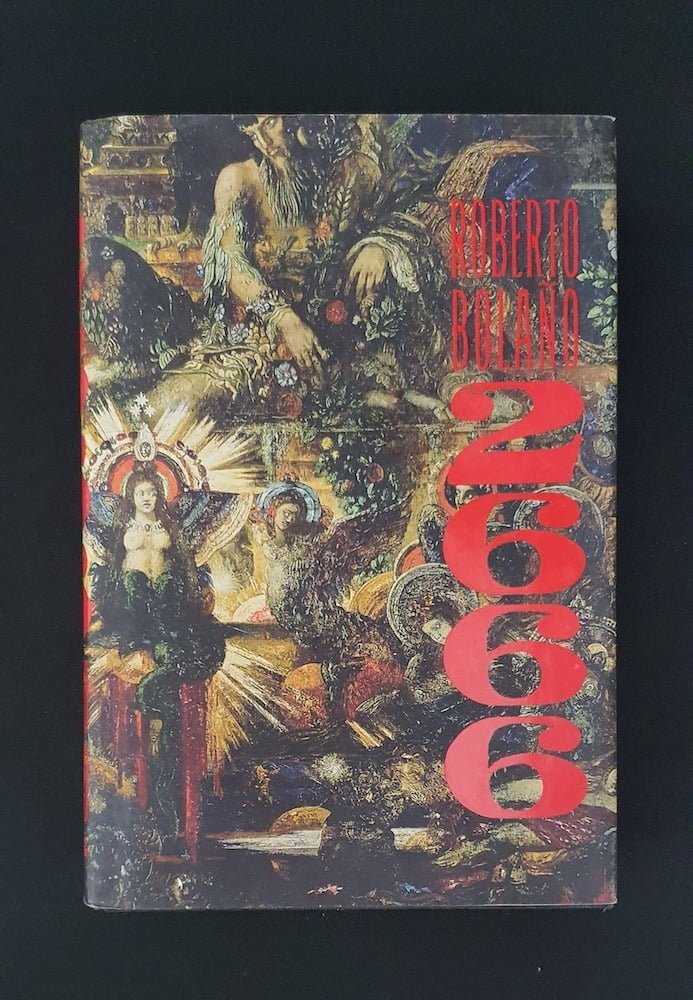In modern literature, few works navigate the shadowy corridors of existential angst and melancholic rumination as poignantly as Fernando Pessoa’s The Book of Disquiet (Livro do Desassossego, 1982). Born in Lisbon in 1888, Pessoa lived a life of introspective solitude, which profoundly influenced his writing. The Book of Disquiet is a collection of vignettes, diary entries, and thought-provoking reveries that delve into the themes of existential despair, the monotony of daily life, and the search for answers to the eternal questions.
Comprised of aphorisms and philosophical reflections, this posthumously published masterpiece serves as a testament to his intricate exploration of the self, articulated through the fragmented persona of Bernardo Soares, one of Pessoa’s many heteronyms. Through Soares, Pessoa articulates a vision of life that is intrinsically devoid of meaning, a perspective that resonates deeply with the existential philosophy of the 20th century.
The Story Behind Its Posthumous Discovery
Pessoa died in 1935, leaving behind a trunk filled with thousands of pages of unpublished writings, including the fragments that would become The Book of Disquiet. The significance of this trove was not immediately recognized, and it was only decades later that scholars began to piece together the manuscript from the disparate texts.
The book was first published in 1982, nearly half a century after Pessoa’s death, and has since undergone several editions, each attempting to make sense of the labyrinthine collection of writings Pessoa left behind. The posthumous nature of its publication adds a layer of mystery and intrigue to the book, reflecting the enigmatic persona of Pessoa himself.
The Book of Disquiet was not written as a single, cohesive work but rather compiled from a series of fragments, notebooks, and loose papers that Pessoa wrote over the last two decades of his life. These writings were never intended for publication in their current form; instead, they were a constant work in progress, a sort of personal diary of Pessoa’s inner thoughts and reflections.
A Reflection of Pessoa’s Inner World
Pessoa’s life was marked by a quiet intensity that belied the tumult within. Central to his work is not just a fear of death or non-existence but a deeper contemplation of the absurdity of living. Pessoa’s musings in his writings capture the tumultuous inner world of his persona, reflecting a universal struggle with finding meaning in an indifferent universe.
A prolific writer, he created a vast body of work under various heteronyms—distinct identities complete with their own biographies, philosophies, and writing styles. Bernardo Soares, the semi-heteronym author of The Book of Disquiet, is considered to be the closest to Pessoa’s own persona, a “mutilation” of his very self. The creation of Soares allowed Pessoa to dissect his own melancholy and existential reveries through the veil of another’s eyes, blurring the lines between author and character, reality and fiction.
One of the most striking expressions of this theme is found in Soares’s reflections on the monotony of daily life, where he states, “I’m always astonished whenever I finish anything. Astonished and depressed. My desire for perfection should prevent me from ever finishing anything; it should prevent me even from starting.” This sentiment encapsulates the essence of Pessoa’s meditation on futility—the perpetual deferral of life to an elusive future, rendering the present moment perpetually meaningless.
How The Book of Disquiet Came to Be
The motivations behind The Book of Disquiet are as complex and multifaceted as Pessoa himself. At its core, the book was Pessoa’s attempt to articulate the ineffable—a profound exploration of his own sense of disquietude with life and the world around him. It was a means of confronting and expressing the existential angst and melancholy that pervaded his being. Through Soares, Pessoa was able to explore and question the very nature of existence, identity, and the search for meaning in a way that was intensely personal yet universally resonant.
With this book, he invites us not just to read but to have a profound engagement with its themes and observations. It challenges us to confront our own anxieties and to find solace, perhaps, in the shared experience of melancholy. The work’s fragmented nature mirrors the fragmented self, offering a reflection on the multiplicities within us that grapple with the questions of life’s purpose and meaning.
For instance, Pessoa writes of the Lisbon streets under the rain, imbuing them with a melancholic beauty that transcends their ordinary existence. It is in these moments that Pessoa’s melancholy serves not as a veil of despair but as a lens through which the world is re-enchanted, revealing the poignant beauty hidden within the banal.
Reading Pessoa’s work, one is imbued with a profound sense of sadness, but a sadness that does not merely lament life’s meaninglessness but also finds a certain beauty in its desolation. This book is replete with meandering words that transform mundane aspects of life into subjects of profound contemplation.
Memorable Quotes
To act, that is true intelligence. I will be what I want to be. But I have to want whatever that is. Success means being successful, not just having the potential for success.
Page 198, The Book of Disquiet by Fernando Pessoa
I live always in the present. I know nothing of the future and no longer have a past. The former weighs me down with a thousand possibilities, the latter with the reality of nothingness. I have neither hopes for the future nor longings for what was. Knowing what my life has been up until now—so often so contrary to the way I wished it to be—what assumptions can I make about my life except that it will be neither what I presume nor what I want it to be, that it will be something that happens to me from outside, even against my own will?
Page 266, The Book of Disquiet by Fernando Pessoa
I have a kind of duty always to dream, for, since I am nothing more, nor desirous of being anything more, than a spectator of myself, I must put on the best show I can.
Page 346, The Book of Disquiet by Fernando Pessoa
Only one thing surprises me more than the stupidity with which most men live their lives and that is the intelligence inherent in that stupidity.
Page 374, The Book of Disquiet by Fernando Pessoa
The simplest things, the truly simplest things that nothing can make anything other than simple, are made complex just by my experiencing them. I feel intimidated sometimes by having to say good morning to someone. My voice dries up, as if to pronounce the words out loud were an act of extraordinary audacity. It’s a kind of embarrassment at my own existence—there are no other words for it.
Page 456, The Book of Disquiet by Fernando Pessoa
Further Reading
Fernando Pessoa’s Disappearing Act by Adam Kirsch, The New Yorker
‘The Book of Disquiet’ Is the Weirdest Autobiography Ever by Scott Esposito and Bradley Babendir, Electric Literature
The City of Lost Things: Rediscovering Fernando Pessoa’s ‘The Book of Disquiet’ by Mike Broida, The Millions
A Cold in the Soul: Reading the Book of Disquiet in Apartment 62 by Benjamin Kunkel, The Believer




